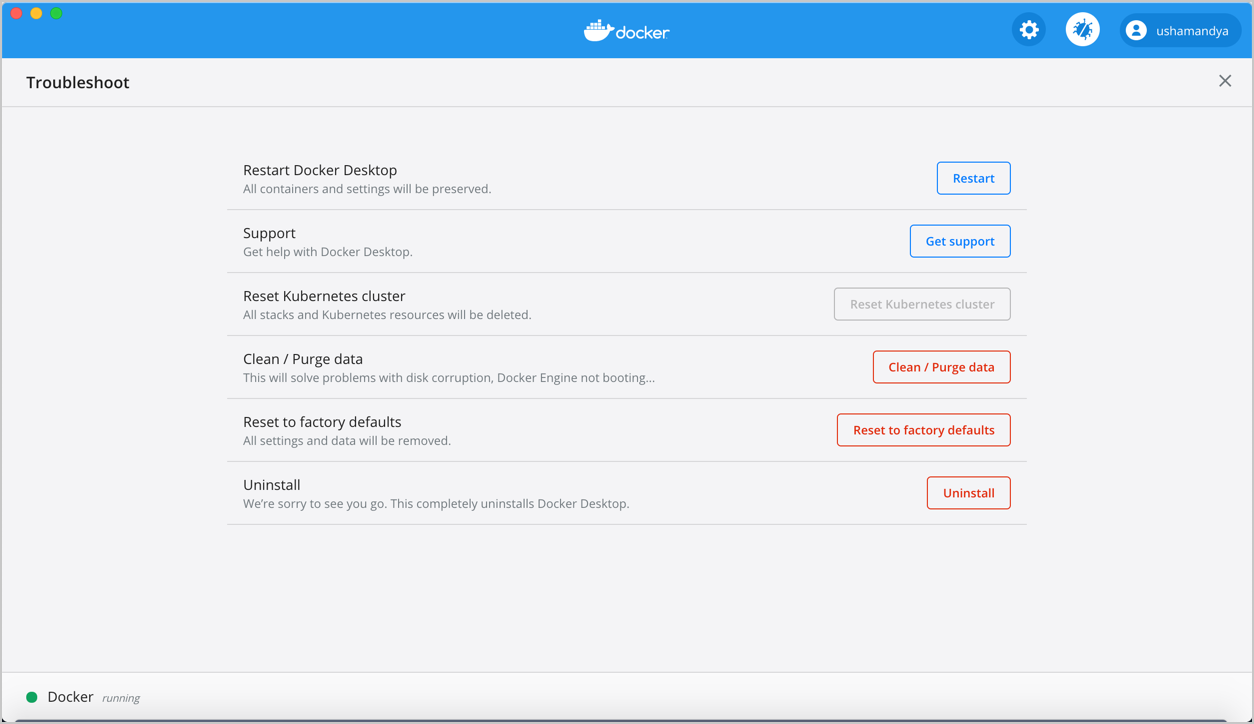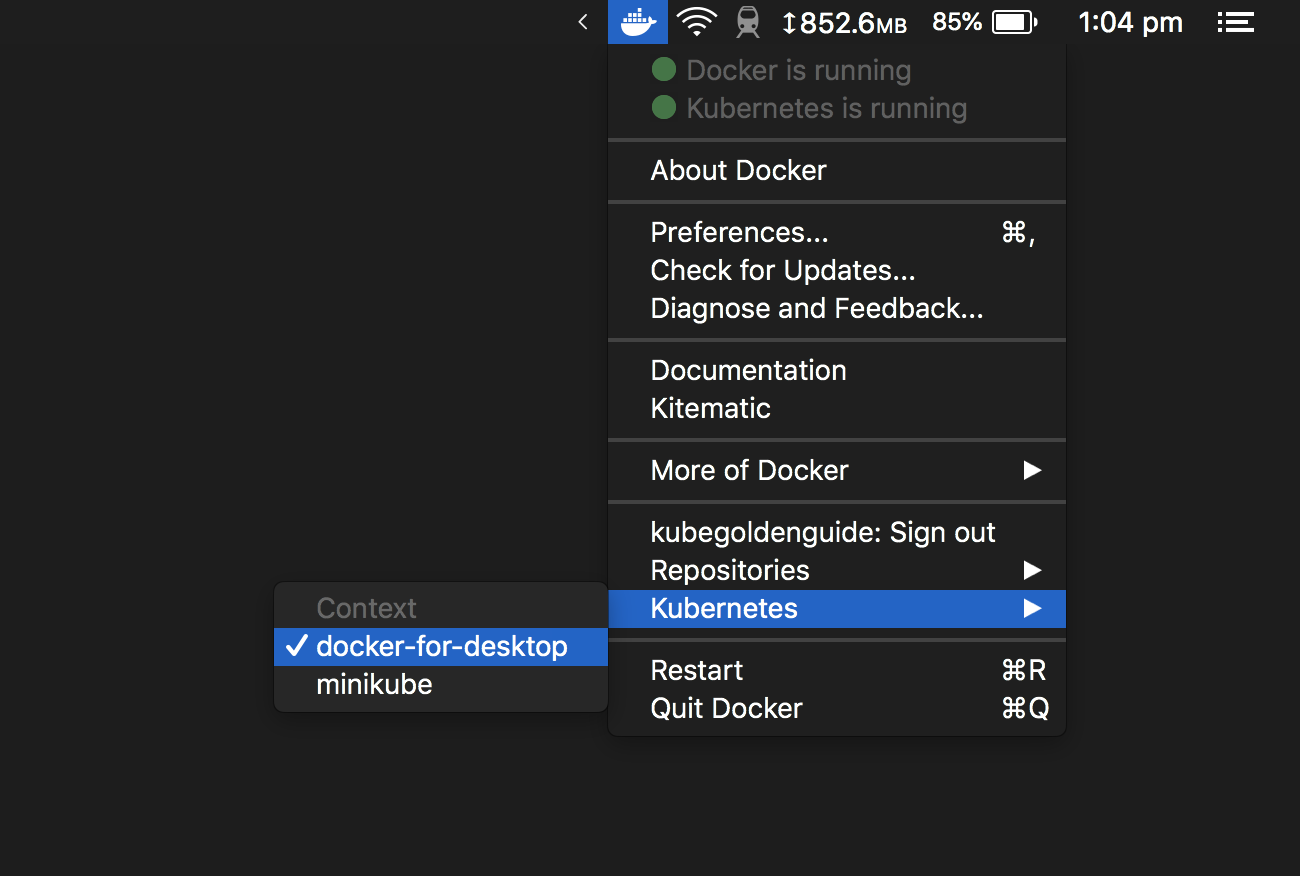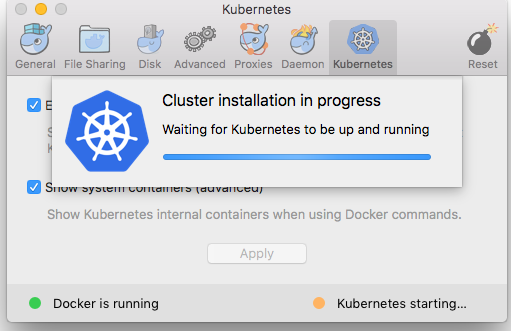
- Docker for mac osx mac os x#
- Docker for mac osx install#
- Docker for mac osx drivers#
- Docker for mac osx full#
- Docker for mac osx code#
Ls -l /usr/local/share/man/man8/docker* Caveats Ls -l /usr/local/share/man/man5/Dockerfile*
Docker for mac osx full#
Then to view any docker related man page, just use man like normal!įor a full listing of all the man pages that get installed run: ls -l /usr/local/share/man/man1/docker*
Docker for mac osx install#
To install the man pages, just run the script: The script assumes you have docker and git installed and an active internet connection to pull the docker git repository and a docker image to your local system. The script assumes that you are using Mac Homebrew on your OS X system. Useful when combined with Docker for Mac, dlite or Triton
Docker for mac osx mac os x#
Install the man pages for docker on your Mac OS X system using docker and go-md2man. ^ "Linux Containers - LXD - Introduction".LXC is no longer running as root so even if an attacker manages to escape the container, he’d find himself having the privileges of a regular user on the host However, at least in Ubuntu, our default containers ship with what we think is a pretty good configuration of both the cgroup access and an extensive apparmor profile which prevents all attacks that we are aware of. ^ a b Graber, Stéphane (1 January 2014).Archived from the original on 9 January 2014. ^ "Everything You Need to Know about Linux Containers, Part II: Working with Linux Containers (LXC) | Linux Journal".^ "Docker Engine release notes - 1.10.0 ()".
Docker for mac osx drivers#

LXC 2.0 and 3.0 are long term support releases: LXC 2.0 will be supported until June 1st 2021 LXC 3.0 will be supported until June 1st 2023. Version 1 of LXC, which was released on 20 February 2014, is a long-term supported version and intended to be supported for five years. In contrast to OpenVZ, LXC works in the vanilla Linux kernel requiring no additional patches to be applied to the kernel sources. LXC is similar to other OS-level virtualization technologies on Linux such as OpenVZ and Linux-VServer, as well as those on other operating systems such as FreeBSD jails, AIX Workload Partitions and Solaris Containers. However, even privileged containers should provide adequate isolation in the LXC 1.0 security model, if properly configured. Unprivileged containers are more limited in that they cannot access hardware directly. Starting with the LXC 1.0 release, it is possible to run containers as regular users on the host using "unprivileged containers".
Docker for mac osx code#
Originally, LXC containers were not as secure as other OS-level virtualization methods such as OpenVZ: in Linux kernels before 3.8, the root user of the guest system could run arbitrary code on the host system with root privileges, just as they can in chroot jails. It also relies on other kinds of namespace isolation functionality, which were developed and integrated into the mainline Linux kernel. LXC relies on the Linux kernel cgroups functionality that was released in version 2.6.24. LXC provides operating system-level virtualization through a virtual environment that has its own process and network space, instead of creating a full-fledged virtual machine. References to Linux containers commonly refer to Docker containers running on Linux. Early versions of Docker used LXC as the container execution driver, though LXC was made optional in v0.9 and support was dropped in Docker v1.10.

LXC combines the kernel's cgroups and support for isolated namespaces to provide an isolated environment for applications. The Linux kernel provides the cgroups functionality that allows limitation and prioritization of resources (CPU, memory, block I/O, network, etc.) without the need for starting any virtual machines, and also the namespace isolation functionality that allows complete isolation of an application's view of the operating environment, including process trees, networking, user IDs and mounted file systems.

Linux Containers ( LXC) is an operating-system-level virtualization method for running multiple isolated Linux systems (containers) on a control host using a single Linux kernel.

GNU LGPL v.2.1 (some components under GNU GPL v2 and BSD)


 0 kommentar(er)
0 kommentar(er)
